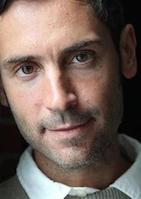How does one find a way to put regrets into a balanced perspective? I see my past life as one that was filled with the kind of possibilities that open doors to a life of “wonderfulness.” As I look back, it seems to me that although those possibilities were never spelled out in specific ways, it was about achieving a reasonable facsimile of “fame and fortune,” or, to put it simply, living life above the masses of humanity in comfort and entitlement.
Okay. There it is! The error in my thinking! We are all part of the masses of humanity. So how did I get to a place I thought I should be above? Of course, daydreaming always comes to the rescue when we need to avoid something that feels endangering, especially when we are bewilderingly alone with our feelings. The answer goes beyond daydreaming and the power of dissociation. As starters, I came out of the womb with a depth of emotionality that did not fit into a cultural background that censored the show of feelings. As the child of Eastern European Jewish immigrants who quickly assimilated to the New England culture within which we lived, my emotionality was constantly demonized. I learned, only too well, to quell my feelings in harmony with what I intuited was expected of me.
The blame does not lie with my parents, who were kind and loving. I’m sure they, too, were struggling with their own feelings to fit into a world that, on many levels, may have felt foreign and frightening. But I digress from the subject of regrets as they concern the failure to meet fantasied expectations. In polite society, responses to invitations are by “regrets only.” Conversely, an invitation to a life lived goes beyond “regrets only” because it includes a wide array of feelings, not the least of which are regrets. The caveat here is finding a way to put regrets into a context of understanding rather than failure, a state that is injurious to self-esteem.
American philosopher, Martha Nussbaum describes emotions as appraisals that we ascribe to things and persons. They are also a significant source of ones’ flourishing. For me, appraisals were outside my control. I had no language to connect my endemic feelings with how I thought about my world. This lack of understanding ones’ emotional world is a critical dilemma for far too many people.
Despite the disconnect from what I felt, the depth of my emotionality led me to a lifelong pursuit to make sense of unexpressed feelings and translate them into a discursive form of emotional knowing. It’s not surprising that I became a contemporary psychoanalyst writing and working with what I refer to as “extralinguistic affectivity,” feelings that exist outside the range of words. My approach includes a way to understand emotional experience, hopefully, without judgment. The optimal word here is experience. Experience simply exists. As a phenomenon, subjective experience transcends arbitration, and, as such, judgment.
So how do I reconcile an erroneous mode of thinking with emotional authenticity? It is a struggle that needs to be constantly acknowledged, especially during moments when regrets occupy “top of mind.” What helps me during challenging times is realizing what human experience is about. We are all battling the struggles of life together. I have had important help along the way so I can usually identify when I’m losing a perspective of what it means to be human.
Yet, there are still those difficult times and transitions when we all tend to revert back to old ways of thinking. No matter who we are, where we are in life and how young or old we may be, we may need the validating response of a nonjudgmental, understanding other. It is our continuing struggle as human beings to remember what we tried to forget during certain times in our lives. Though clichéd, truth can set us free. For me, truth begins with realizing that struggle is an inevitable part of the human passage to which I, among many others, belong.



 By Brent Potter PhD
By Brent Potter PhD
